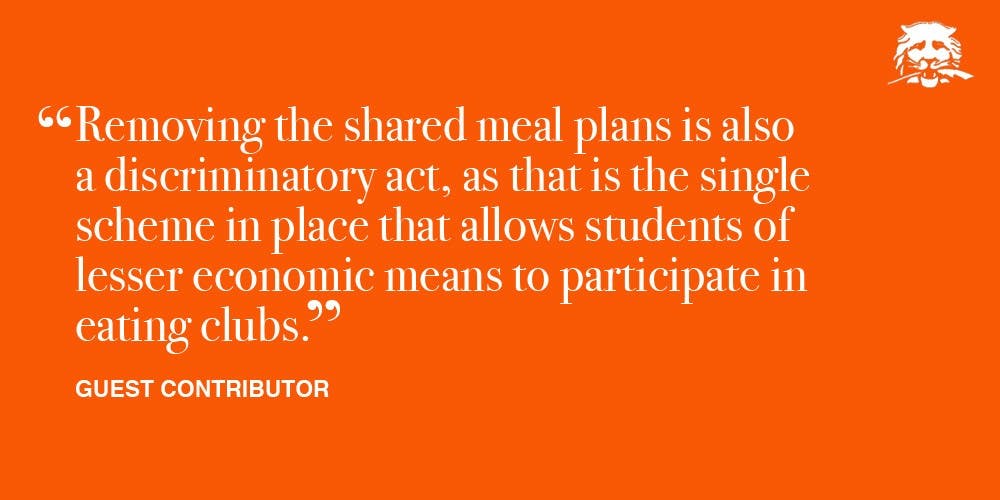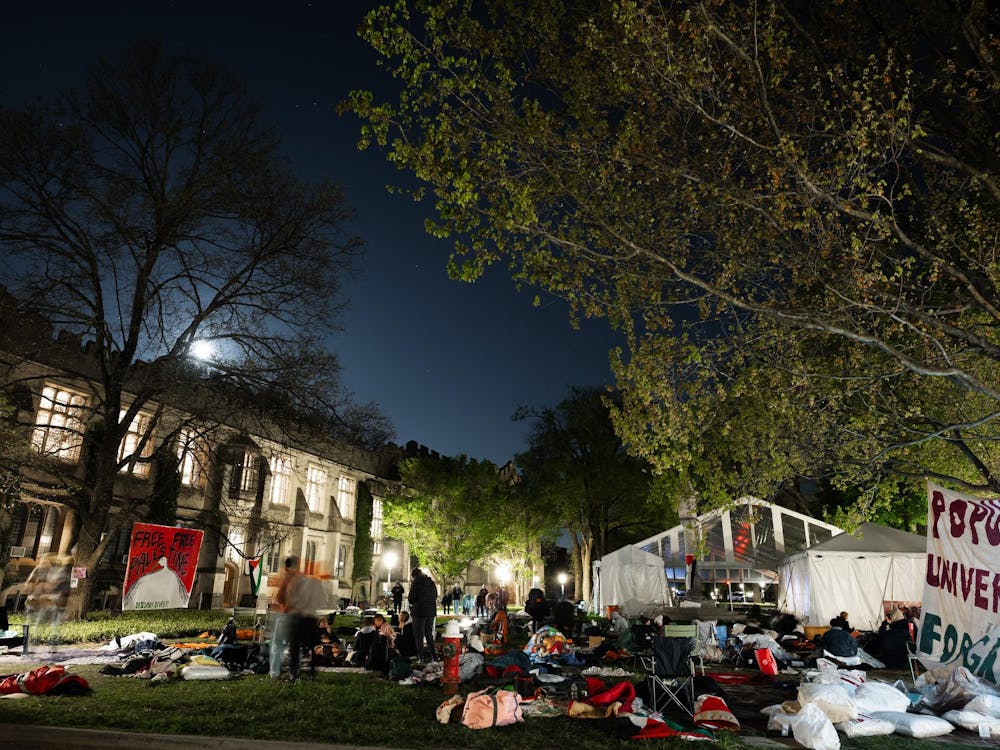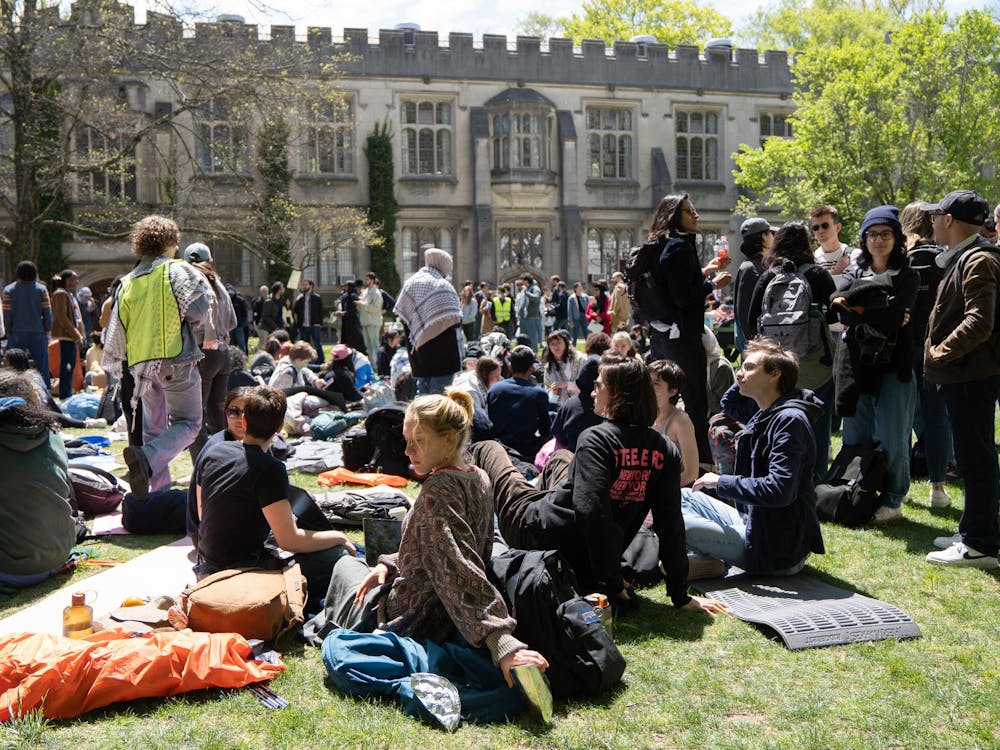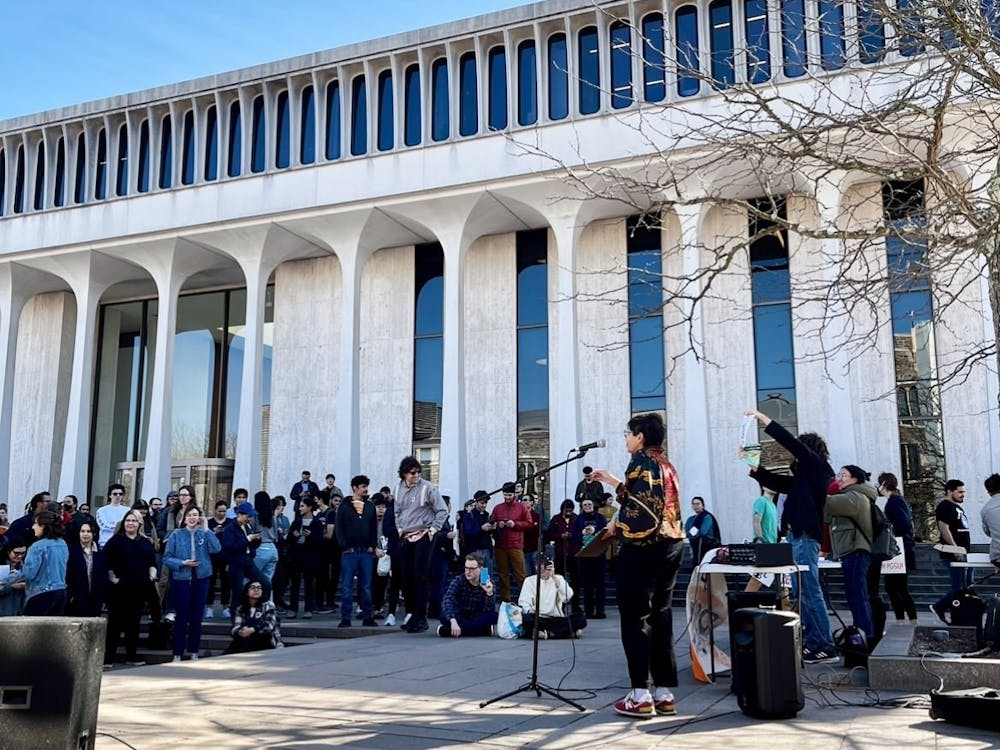The University administration circulated a survey to collect feedback on the Proposed Meal Plan Changes for 2019–20. The Princeton University Board Plan Review Committee’s plan includes compulsory meal plans for upperclass students, but only independents and co-op members. This proposal apparently came from the “first comprehensive review of board plans since 2005.” My phone-typed response soon had the length of an essay, and I’m sharing part of that here. As an engineering major focused on sustainable design, and a health-focused individual who treasures the interpersonal warmth of a great meal, I’ve long taken issue with the required meal plans at this university. The forced predetermination of one’s food and eating place is incomprehensible to my friends and family, in Germany and across the globe.
Aside from sustainability, health, and personal preferences, though, the proposed changes are discriminatory. They do not effectively address the committee’s wide range of stated goals: increasing flexibility, fostering community, easing social transitions, and actually promoting health, wellness, and sustainability, too. I suggest a simple set of alternative modifications in my last response that do promote these priorities.
You can attend discussion sessions with PUBPR representatives on Tuesday at 9 a.m. in the Forbes Private Dining Room, Thursday at 6 p.m. in the Rockefeller Private Dining Room, and Friday at 12 p.m. in the Whitman Private Dining Room. The survey at hand was sent out by Undergraduate Student Government and is still open for written feedback.
Which aspects of the plan do you support?
Home college meals for club members and dining points.
Which aspects of the plan don't you support?
Forcing underclass students to be on an unlimited plan. If any change is made to the current system, it should be to take away the meal plan requirement altogether. It is absurdly restrictive to force a self-sufficient adult to eat certain foods, spend time in a particular physical and social space, and eat their meals in a specific atmosphere. In case it has been forgotten, eating is one of our most basic needs as humans. We must fulfill it, and every human is bound to that need.
I also do not support the required meal plan for upperclass students who are independent or in a co-op. For those of lesser economic means, they cannot afford to pay for a meal plan and then disregard it. They cannot afford to buy all their own groceries or eat out for every meal when they are already paying for a meal plan. This is different for the students of greater economic means, making this policy highly discriminatory. Only those people of lesser economic means are forced to eat in the dining halls. The committee’s goal of having more upperclass students eating in the dining halls will have a disproportionate effect on students of lesser economic means. Additionally, the independent and co-op communities already represent a greater portion of the campus community of lesser socioeconomic status than the eating club members. So, the fact that the proposed strategy to increase feelings of community in the dining hall targets only non-eating club members is already a discriminatory act.
The plan of five home college meals per term for club members is a much more effective means for strengthening community, as the majority of upperclass students are in eating clubs. A larger number of people are brought into the dining halls, and this policy is far less restrictive than a full meal plan. The dining hall swipes for club members could even be implemented in an extended form of what is currently proposed for even greater community engagement.
The option to be independent as an upperclass student must be left available. A home college meal scheme can be implemented for the non-eating club members, as well, though let me remind you that they represent a far smaller portion of the campus community.
Another simple and effective solution is to increase the weekly number of meal swipes that each upperclass student has available to them, currently named two extra meals. This gives greater flexibility than the home college meal scheme and is thereby preferable.
The committee’s stated goal is to increase flexibility and affordability in the future. The way to do that is to have fewer requirements. Adding more rules and regulations necessarily reduces flexibility. In the current scheme, anybody can choose to have a larger meal plan. But this proposed scheme prevents all students from choosing not to have a meal plan if they so wish. You must also take cultural differences into consideration here. Outside of the United States, most people learn to take care of their eating needs before they graduate from secondary school. They expect to have the option to buy whatever they choose to from a grocery store once they are living on their own. To force all students to be on a meal plan is hugely restrictive to those students, myself being one of them. I have very high health standards for my food, as this is one of my primary preventative health care strategies. My health care would be obstructed by a required meal plan.

Removing the shared meal plans is also a discriminatory act, as that is the single scheme in place that allows students of lesser economic means to participate in eating clubs. Eating clubs already represent a highly elitist and discriminatory system, seeing as their membership prices are so high, ignoring the additional fact of Bicker. The financial aid available to students is not always sufficient to cover the costs, and some end up taking loans to be a part of the eating clubs.
Can you imagine that? Somebody from an underprivileged background has come to this institution for education and an opportunity to participate in the shaping of our future world and society, and in order to participate, they find that they are forced to endure pains to cater to the preferences of the elite. In order to participate in the intellectual discourse that is meant to be the heart of this community, they are forced to take out loans to pay for poorly budgeted social events and the excessive alcohol consumption of their peers.
Another essential scheme to increase genuine community connection on campus is to create more co-ops. Students build deep, authentic, and open-hearted relationships in co-ops. You are always welcome to have dinner at 2D to witness it for yourself. Co-ops could also be made available to underclass students to allow genuine connection and community engagement to encompass the full range of students on campus. There is huge demand for co-op membership that cannot be met by the number of co-ops currently in operation. More localities need to be secured for co-ops and more funding needs to be allocated for new co-ops to open, making them more available to all students. Students learn self-sufficiency in co-ops, an essential skill for their social transition after college — another of the committee’s stated priorities. They learn to self-organize, as the entire co-op is student-run. And the co-ops foster greater wellness, as students often feel more socially comfortable in them than they do in eating clubs. They’re more intimate since they’re so much smaller. Co-op members feel they are able to let their guard down. They de-stress together, and they support each other, as the social setting of the co-ops is less formal than that of the eating clubs.
2D is a great example of how health and sustainability can be increased through co-ops — another of the committee’s ostensible priorities. The food at 2D is vegetarian and vegan, all produce is organic, and all meals are very well balanced and nutritious. A vegetarian or vegan diet is both far more environmentally sustainable than eating meat and dairy and healthier for many individuals. Organic farming does not release the pesticides, fungicides, herbicides, and synthetic fertilizers of conventional farming to the environment, which have far-reaching impacts on surrounding ecosystems. There are more micro-nutrient dense foods available at 2D than there are in the dining halls. There is barely any food waste, and composting and recycling are carried out with great care.
The committee states a desire to support community engagement, social transitions, health and wellness, and sustainability. People who feel forced to eat in the dining halls, rather than choosing where to fulfill their most essential need, are often unhappy when eating in the dining halls. They know that their peers of greater means can choose to eat in a restaurant or an exclusive club. Therefore, the social atmosphere among those in the dining hall will not foster feelings of community, as they may feel spiteful or deprived during that time. The dining hall is also a loud and stressful environment. This makes it unconducive to personal connections and health and wellness. Stress is possibly the biggest issue among undergraduates on this campus, so students should absolutely not be forced to eat in a stressful environment. There is an absurd amount of food waste in the dining halls, so forcing independents and co-op members to eat in the dining halls has an injurious effect on sustainability. Most independents and co-op members eat far more sustainably on their own.
Do you have any recommendations to improve the plan?
Extend the two extra meals scheme to four meals per week for upperclass students without forcing them to buy a full meal plan.
Open more co-ops and make them available to underclass students.
Take away all meal plan requirements, giving students full flexibility in their dining choices.
Implement the home college meals for club members scheme. Keep the shared meal plans.
Zoe Zeitler is a sophomore in civil and environmental engineering from Munich, Germany. She can be reached at zzeitler@princeton.edu.









